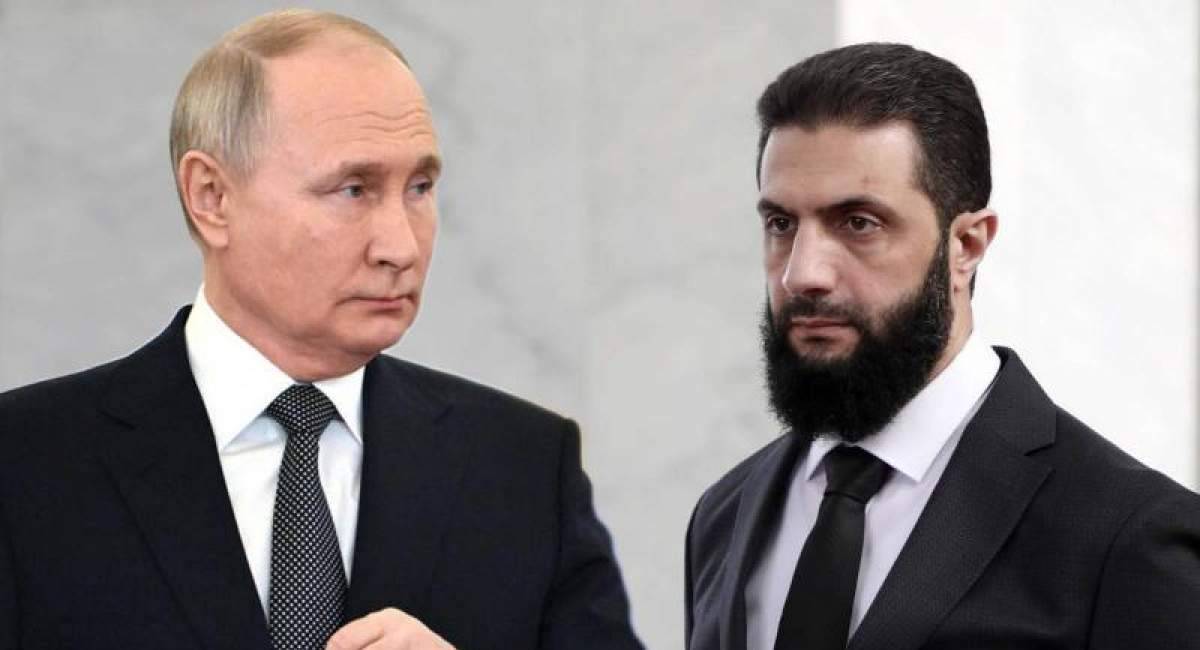714 Views
Putin's Pivot: How Russia is Reinventing Its Syrian Playbook After the Fall of Assad
The unexpected fall of Bashar al-Assad's government in December 2024, triggered by the rapid advance of Hayat Tahrir al-Sham into Damascus, not only transformed Syria's political map but also confronted all regional and international actors with a new reality. Among these, the fate of Russia's influence, which had spent years of massive military and political investment to ensure Assad's survival, became the most crucial question in analyzing the new Middle Eastern order.
However, Moscow, with a swift and pragmatic reaction, demonstrated that the end of the Assad era does not necessarily mean the end of Russia's strategic presence in the Levant. By consolidating its military presence, redefining its diplomatic role, and intelligently using tools of soft power, the Kremlin is designing a strategy for survival and influence in a Syria that is no longer an unquestioning ally for Moscow.
Consolidating Strategic Presence Despite the Change in Power
Moscow's first and most immediate move after the developments in Damascus was to secure and fully consolidate the Hmeimim and Tartus bases. These two bases are more than just military symbols; they are vital arteries for Russia's access to the warm waters of the Mediterranean and a logistical cornerstone for power projection in the Middle East and North Africa. While Russian forces withdrew from many areas inside Syria, they reinforced their presence in these coastal regions. This action sent a clear message: regardless of who rules in Damascus, Russia's fundamental strategic interests are non-negotiable.
Redefining the Role from Regime Patron to Regional Mediator
Russia quickly realized that its previous strategy of unconditional support for a single regime was no longer effective. Russian diplomats immediately entered into negotiations with the emerging government in Syria. This tactical shift changed Russia's role from a "supporter of one side of the war" to an "essential mediator" for managing the transition period.
Using its influence over various groups and its long-standing connections with regional actors like Turkey and Iran, Moscow presented itself as a balancing weight that could prevent the complete collapse of state structures and widespread chaos. This approach allowed Russia to retain a key seat for itself in negotiations concerning Syria's political future.
Leveraging Soft Power Tools
Although military power is the backbone of Russia's presence, Moscow is well aware of the importance of soft power tools. Amid Syria's economic and humanitarian crisis, Russia is portraying itself as an economic savior by sending shipments of fuel, wheat, and humanitarian aid. Moscow has even played a role in printing banknotes for areas controlled by the new government and providing financial advice.
Diplomatically, Russia has used its veto power in the Security Council to prevent new sanctions against Syria and promises support for international reconstruction. These actions soften the harsh image of military intervention and institutionalize Russian influence across various layers of Syrian society and the economy.
The Challenge of the Ukraine War and Resource Limitations
However, Russia's strategy in Syria faces serious obstacles. The most significant obstacle is the war in Ukraine. This extensive conflict consumes a major portion of Moscow's financial, military, and diplomatic attention and resources. Western sanctions have put pressure on the Russian economy, reducing the significant funds previously injected into Syria. This has compelled Moscow to resort to lower-cost solutions to maintain its influence, such as enhancing diplomacy and using private security companies (like the former Wagner Group).
Increasing Competition with Regional Actors
The Syrian arena is no longer Russia's exclusive domain. A multifaceted regional competition is underway. Arab countries like the UAE and Saudi Arabia are returning to Damascus through investments in reconstruction. Turkey has increased its influence with the rise of Tahrir al-Sham to power, and Iran is also seeking to maintain its constructive role. China is gradually increasing its economic role as well.
In this competitive environment, Russia cannot dominate as it did in the past. Consequently, it has been forced to adopt a multilateral policy and engage with all these actors, even competitors, to maintain its position. This means sharing power and moving away from its previous exclusive role.
The Shift in Damascus's Position and Political Independence
The new government in Damascus, while needing cooperation with Russia, shows no desire to fall exclusively into Moscow's orbit. One symbol of this approach was the announcement of the resumption of diplomatic relations with Ukraine in January 2025; an action that sent a clear message of political independence to the Kremlin. Damascus's multilateral policy is based on balancing various powers – including Russia, the West, Turkey, and the Arab world – to prevent over-reliance on a single actor. This approach weakens Russia's leverage and forces it to offer more concessions to maintain its influence.
Conclusion: The Future of Russian Influence and the Necessity for the West to Focus on Reconstruction
Russia's role in post-Assad Syria has transformed from a purely military intervener into a multifaceted and adaptable player. Relying on its hard assets (bases) and soft assets (diplomacy and economy), Moscow has tried to define a stable position for itself in the new Middle Eastern order. However, the pressures from the war in Ukraine and intensifying regional competition have limited its room for maneuver.
In this context, strategic analyses warn the West that an approach of isolation and setting preconditions for Damascus to completely sever ties with Moscow is a failed strategy. Instead, focusing on Syria's reconstruction could be more effective. A stable and growing Syria will naturally move towards diversifying its international partners, and this will gradually reduce the monopoly of Russian influence. Syria's future will be determined not through isolation, but through constructive engagement with the world, and Russia will also be compelled to accept its role in this new arena as one partner among others.
Translated by Ashraf Hemmati from the original Persian article written by Mohammad Saleh Ghorbani
https://www.themoscowtimes.com/2025/02/06/syria-could-let-russia-keep-air-and-naval-bases-new-defense-minister-says-a87896
https://syrianobserver.com/foreign-actors/restoring-syrian-ties-with-russia-reviving-a-legacy-of-subservience-or-political-pragmatism.html
https://onlinelibrary.wiley.com/doi/10.1111/mepo.70005
https://carnegieendowment.org/russia-eurasia/politika/2025/08/russia-syria-new-approach?lang=en

Comment
Post a comment for this article